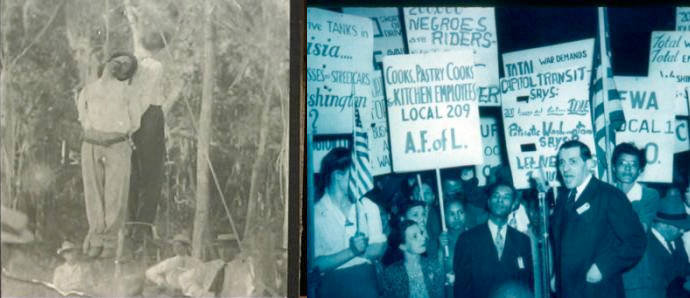The Director of “Pane Amaro” (Bitter Bread), an acclaimed doumentary about the life and history of early Italian immigrats in the U.S., talks about whether sweeping dirt under the rug is the way to deal with undesirable facts. His film touched upon several diffucult topics, including he lynching of thirty-nine Italian immigrants across the United States between 1886 and 1916.
“Occasionally you do find some people who, when faced with difficult, uneasy subjects, react by closing their eyes; they prefer not to know about them and even try to prevent you from talking about them. They use a metaphor, you know, they say that we shouldn’t ‘wash our dirty laundry in public’. And I think it doesn’t advance the conversation. I do believe that we need to explore difficult issues such as this."
There has been a wave of protests lately from the Italian-American community about MTV’s reality show “Jersey Shore.” Recently though some people have harshly criticized the Calandra Institute, a research institution at CUNY, for sponsoring an academic colloquium on the guido lifestyle. What is your opinion on these issues?
I only saw a few excerptsof "Jersey Shore" and it did not appeal to me. I can see why peopleconsider it demeaning and offensive. But I think it is important to keep our focus on the fact that if there is a phenomenon among the Italian American youth that is similar to that portrayed in the show, we need to study it, we need to understand what causes it and what are the consequences. Only if we undestend it we may prevent these stereotypes from becoming common currency in the media.
So I think the Calandra Institute is doing a very important job in sponsoring an academic discussion of this subject—this segment of the Italian American youth culture, not just the MTV show. In any group there can be some problematic experiences, but they don’t go away just by not talking about them. In a sense, I think we have the responsibility to appropriate this kind of investigationa and discussions—it is our business, as Italian Americans,more than anybody else’s. An there could be no better place than the Calandra Institute, and a colloquium with a social scientist who has studied this phenomenon for a number of years...
In other words, it is one thing if the media exploit a phenomenon for commercial reasosn, and maybe circulate offensive stereotypes, but it is a different matter when a cultural institution affords the same phenomenon with the purpose of investigating it...
Yes. If we are trying to understand the roots of a problematic behavior of some Italian American youths, we are not "endorsing" it in any way, and surely we are not "glorifying" it. These phenomena may be more or less widespread or isolated, representative or unique, but once we get to the point we are at, we cannot deny that they do exist. And if they exist, only by bringing them into full light and by exposing them to serious intellectual scrutiny can we really undestand them. And beacuse we are talking about youths... this is also the only way we can provide young people with the tools to understand whether there is any value for them in this phenomenon, whether there is any good in being associated with it, or if it has negative consequences.


































i-Italy
Facebook
Google+
This work may not be reproduced, in whole or in part, without prior written permission.
Questo lavoro non può essere riprodotto, in tutto o in parte, senza permesso scritto.